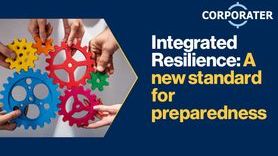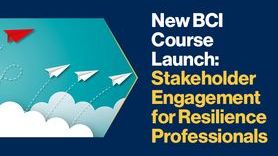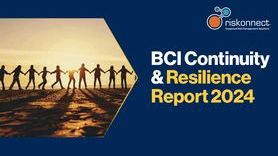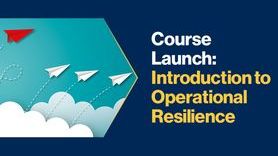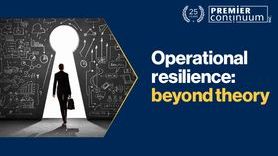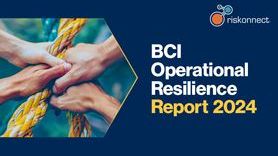The value of the BCI’s network of Licenced Training Partners | Delivering through the pandemic

Delivering through the pandemic
The BCI is committed to providing high-quality education and training in business continuity & resilience. To accomplish this goal, The BCI relies on a global network of carefully selected Licensed Training Partners (LTPs) which deliver BCI training courses – including the CBCI Certification Course and 1&2 Day courses – across the world.
Over the last couple of years, the pandemic has challenged organizations across all industry sectors, forcing them to adapt to a new world and a new operational regimes in order to stay in business. The BCI and its LTPs were not exempt from this: the BCI had to rethink the way training courses were delivered as well as adapting to the increasing demand for business continuity training and then work with LTPs to execute delivery.
In this fast changing environment, most LTPs showcased impeccable levels of resilience by quickly adapting their training services. In less than three months, they were able to transition their in-class courses to online - via a variety of different webinar platforms. Sam Howard, CEO at Continuity Shop (based in the UK), explained, “we moved to daily online crisis updates and obtained software to enable us to communicate online and assess the changes that would be required to deliver online services.” He also added, “the BCI kept in constant contact with us and our top management team communicated daily with staff to migrate our training delivery to online. This involved training sessions and rehearsals to understand the best way to meet the requirements of the BCI and to maintain our quality of service to our customers. Rehearsals took place online with head office and quality checks took place with BCI Education.”
Each LTP training course ran at the same dates and times, were led by an approved BCI Instructor and attendees were still able to interact and network. LTPs were able to deliver the exact same learning experience, but from the comfort and safety of students’ homes or other safe locations. Jeff Primus, founder & owner of ACTAGIS (based in Switzerland), mentioned that his company had run online courses for many years and the key for their success was to “prepare our candidates for the transition [from in class to online]”. Jeff also added that all their efforts were put “to satisfy our customers and prepare them before the training sessions so that they could dive in the new context without difficulty.”
In Australia - where the government imposed some of the strictest regional lockdowns and travel restrictions - the new online way of delivering training became an opportunity rather than a disruption. Malka Bakes, General Manager at RiskLogic (based in Australia), said that online training “provided greater flexibility, improved accessibility, and affordability. For the CBCI course, it opened the opportunity for those who wouldn’t have been able to travel or couldn’t afford to add travel costs within Australia to the training course.” She also added that challenges that they observed were mainly when “conducting group exercises and break out discussions, but advancements in Zoom/Teams with the rooms function has assisted and clients have become comfortable doing sessions online.”
The sentiment was similar from LTP BC Training (based in the UK). Kitt Chabba, Marketing Officer, said “live online training has made our courses more accessible to delegates, who would have previously needed to travel to attend one of our courses.” Chabba also adds that they now have “cohorts with delegates from different regions” which allows for “networking between Business continuity professionals.”
In the last 24 months, business continuity has been catapulted to the top of management agendas. The 2021 BCI Crisis Management report showed that the majority of resilience professionals were confident of securing new investment in resilience tools, training and programmes as a result of the heightened perception of the department. Furthermore, business continuity professionals are increasingly taking on more strategic roles in organizations, with the 2021 BCI Future of Business Continuity report revealing that nearly two-thirds of BC managers’ duties are now strategic, rather than operational. This means more is now being expected of Business continuity professionals, but it also means there is more need for staff members to be properly trained in the discipline. Chabba believes that many organizations that failed to take business continuity seriously in the past are “currently putting business continuity plans in place.” Primus also argues that the pandemic has “opened the eyes of many corporations” and they now understand “the importance of business continuity and the importance of education in the business continuity domain. We see this clearly in increased demand for business continuity training.” Bakes also adds that there is a “greater expectation for resilience managers/risk practitioners etc. to be more educated in business continuity and strengthen connections with other resilience disciplines, rather than just a standalone program. There are more in-house roles being created so training of those individuals is important if they aren’t going to be using external consultancies/SMEs.”
According to Chabba, there will be many new roles and new recruits within business continuity that will need appropriate training as well as certification, adding that “business continuity training ensures that industry professionals are equipped with the skills to be successful within their role, and organisations will need to invest in their staff so they are properly trained, and will therefore implement business continuity at a high standard.”
BCI’s Business Continuity & Resilience training remained available to everyone as the world moved through the COVID-19 pandemic, providing insight for individuals, the self-employed, small and medium sized enterprises and large international corporates. This would not have been possible without the partnership of its Training Partners. Primus explains that the partnership adds value to their business as “the BCI framework, methodology and the training content is well appreciated by our clients.” Bakes said that the relationship with the BCI is “a highly valued strategic partnership” and added that being affiliated with The BCI “fulfils reputational and corporate branding for RiskLogic as we continue to uphold our market eminence as a boutique specialised risk advisory consulting firm in Australia and New Zealand.” Howard adds to this explaining, “The partnership works both ways. The BCI recognises the professionalism of Continuity Shop as we retain our position as a leading BCI Licensed Training Provider.” Chabba from BC Training also adds “2022 will mark our 14th year as a BCI Global Training Partner, and we pride ourselves on our well-established relationship with the Institute. We are working alongside them and have recruited thousands of new students over the years, thus promoting a more resilient world through spreading knowledge and awareness of business continuity via our training and resources.”









